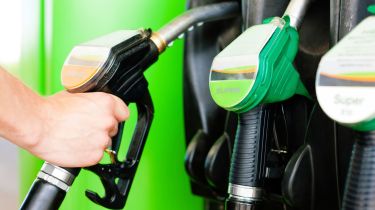Greedy fuel retailers double diesel profit margins instead of cutting prices
The RAC has lobbied the UK energy secretary for action as new figures suggest drivers are still being overcharged

The filling station margin on a litre of diesel has reached an average of 18p, more than double the long-term average of 8p, as big retailers refuse to cut pump prices in spite of reductions in the wholesale cost.
The greed of retailers seeking to maximise their own profits at the expense of consumers is “unfair on drivers struggling to get by in the cost-of-living crisis”, according to RAC Fuel Watch which collected the data.
The latest figures show margins rising in spite of recent reductions in wholesale prices of fuel that have seen the barrel price of oil fall from $90 to $83. The fact that lower prices are not being passed on to motorists has led the RAC to write to Energy Secretary Claire Coutinho, demanding action.
It says while the government has been talking about tackling greedy margins with its proposed Pump Watch scheme - forcing retailers to share live price data that can be used by apps and online platforms - the retailers have been continuing to boost profit with “unreasonably” high margins.
RAC Fuelwatch says the average price of petrol stands at 150p a litre, while it’s 157p for diesel. If retailers were passing on costs fairly, drivers should be paying 145p a litre for both.
Ahead of implementing the Pump Watch scheme and giving powers to the Competitions and Markets Authority to regulate the market, the government has launched a voluntary scheme that currently means 14 of the biggest fuel retailers are providing prices at their filling stations on a daily basis. The Competitions and Markets Authority, which reported last year that retailers had ‘overcharged’ drivers by £900 million in 2022, is also continuing to monitor prices in the interim, but with seemingly little effect.
“The big four supermarket retailers, which dominate fuel sales, are once again flatly refusing to cut their prices in the wake of much lower wholesale costs”, says RAC fuel spokesman Simon Williams. “We realise that supermarkets, along with all businesses, have been affected by inflation, but these increases seem blatantly unfair. And, of course, without them cutting their prices, there is little incentive for other retailers to follow suit.
According to Williams, having tracked fuel prices against inflation it’s easy to see the link. “We therefore have a strange situation where unreasonably big fuel margins are making inflation higher than it should be”, he says.
“If the work of Department for Energy Security and Net Zero and the CMA has had any effect to date on improving fuel price transparency, we ought to see prices at the pumps reduce significantly in the next week due to a sustained drop in the cost of oil. Sadly, we fear retailers are likely to need a little more encouragement before this happens.”
Click here for our list of the best diesel cars...




